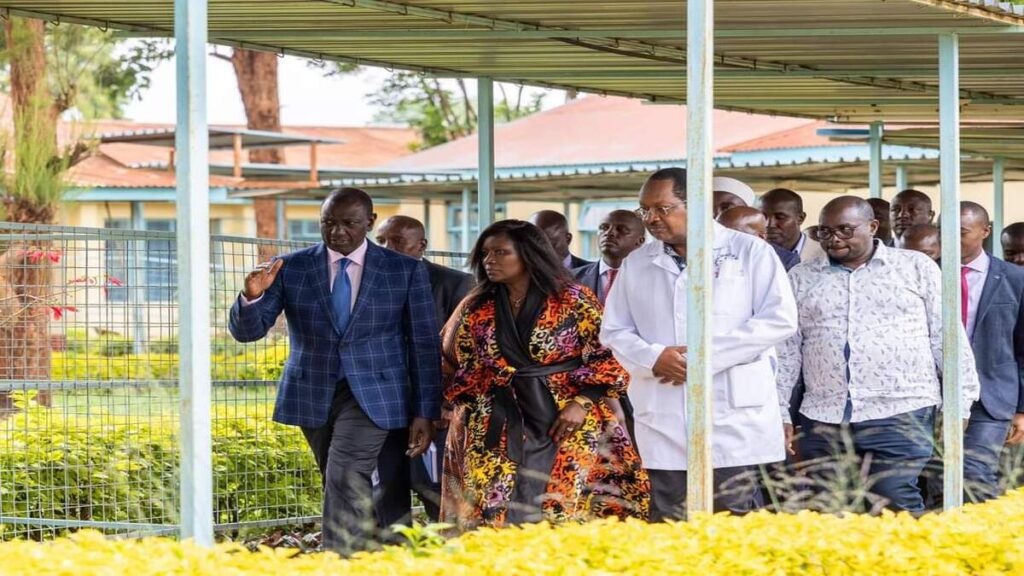In a significant political development, President William Ruto encountered fierce opposition during his recent visit to Embu County. The region, traditionally a stronghold for his administration, displayed unprecedented resistance to his housing initiatives.
Local residents voiced their disapproval through jeers and heckles as the President attempted to explain his government’s Strategic Housing Agenda (SHA). The hostile reception marked a stark departure from the usual warm welcome in this Mount Kenya region constituency.

The President’s housing levy programme, a cornerstone of his administration’s affordable housing initiative, faced particular criticism. Residents openly rejected both the SHA and the controversial housing levy during the public gathering.
The timing of this resistance proves particularly challenging for the administration. It comes amid growing political tensions within the Mount Kenya region, a crucial support base for Ruto’s government.
Adding to the administration’s challenges, the visit coincided with reports of Deputy President Rigathi Gachagua’s impeachment proceedings. This development has created additional strain in the Mount Kenya political landscape.

President William Ruto and Embu County Governor Cecil Mbarire make their way to Embu Level 5 Hosipital shortly after leaving Embu grounds where the head of the state received negative reaction when he tried to praise SHA and housing project.courtesy photo
Political analysts suggest this public display of dissatisfaction reflects deeper issues. Many residents express frustration over what they perceive as unfulfilled campaign promises by the Kenya Kwanza administration.
The housing levy, a mandatory deduction from workers’ salaries, has become a particular point of contention. Many Embu residents view it as an additional burden during already challenging economic times.
Local leaders present at the event observed the marked shift in public sentiment. The usually supportive crowd’s negative reaction signals growing discontent with government policies in the region.
Economic concerns appear to be at the heart of this public resistance. Residents worry about the financial implications of the housing levy on their already stretched household budgets.
The President’s team struggled to contain the situation during the visit. Their efforts to explain the benefits of the housing programme were met with continued opposition from the crowd.
Similar incidents of public resistance have been reported in other parts of the Mount Kenya region. Several Kenya Kwanza allies have faced hostile receptions during their public appearances.
The situation highlights a growing challenge for President Ruto’s administration. They must now work to rebuild trust in areas once considered secure political territories.
Political observers note this could signal a significant shift in Mount Kenya politics. The region’s support has historically been crucial for any administration’s stability.
The rejection of the housing initiatives in Embu may have broader implications. It could influence the implementation of similar programmes in other parts of the country.
Local community leaders express concern about the widening gap between government policies and public needs. They emphasise the importance of addressing these concerns to maintain regional support.
The administration faces the task of reassessing its approach to policy implementation. This includes finding ways to better communicate the benefits of their initiatives to the public.
Deputy President Gachagua’s reported impeachment adds another layer of complexity. It raises questions about the stability of political alliances in the Mount Kenya region.
Economic experts suggest the government might need to reconsider its housing levy strategy. They recommend exploring more publicly acceptable ways to fund affordable housing initiatives.
The events in Embu serve as a wake-up call for the administration. They highlight the need for better engagement with local communities on major policy decisions.
As the situation continues to develop, political analysts predict possible shifts in regional dynamics. The administration’s response to this public resistance could determine future support in the region.



















